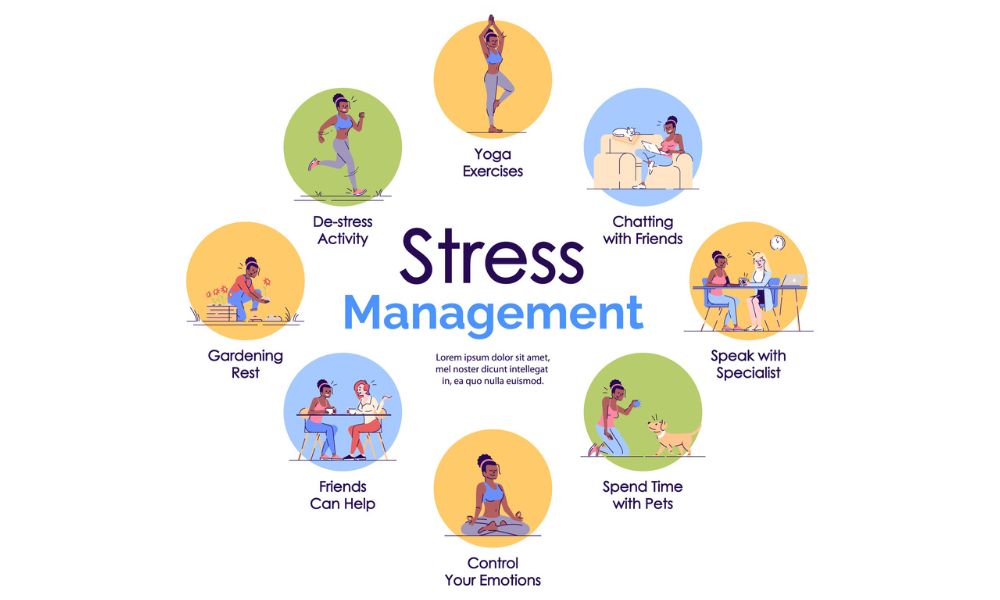Building emotional resilience is essential for managing our reactions in challenging situations. By developing strong coping mechanisms and adopting healthy lifestyle habits, we can significantly reduce our anger outbursts. Understanding the factors that contribute to our emotions helps us respond more calmly and effectively.

It's important to realise that sleep, physical activity, and empathy play vital roles in how we handle stress and anger. When we prioritise these elements, we create a solid foundation for resilience. In doing so, we not only improve our emotional health but also enhance our overall well-being.
As we explore strategies for building resilience, we can equip ourselves to handle anger more constructively. This journey towards emotional strength can lead to more fulfilling relationships and a better quality of life.
Key Takeaways
- Improving sleep and physical activity can lower anger levels.
- Empathy enhances our ability to understand and control emotions.
- Developing a personal resilience plan helps us cope with stress more effectively.
Understanding Emotional Resilience

Emotional resilience is essential for managing our feelings and reactions, especially in stressful situations. It helps us cope effectively with challenges and reduces the likelihood of anger outbursts. Two critical aspects of emotional resilience are its foundation and the role of self-awareness.
The Foundation of Resilience
The foundation of emotional resilience lies in our ability to adapt and bounce back from setbacks. Key components include problem-solving skills, a positive outlook, and strong social connections.
We can build resilience by seeking support from trusted individuals who understand our feelings. Engaging in activities that promote a sense of accomplishment also helps build our resilience.
Techniques like mindfulness and stress management can enhance our coping strategies. Regularly reflecting on our experiences allows us to understand what works best for us.
Self-Awareness and Emotional Regulation
Self-awareness is crucial for recognising our emotions and triggers. Understanding what causes our anger can help us respond in healthier ways.
We can improve our self-awareness through journaling or mindfulness practices. Identifying our emotional patterns allows us to manage our reactions effectively.
Emotional regulation involves controlling our emotional responses. Techniques such as deep breathing, counting to ten, or taking a break can prevent outbursts.
By practising these strategies, we enhance our emotional resilience and create a more balanced emotional state. This focus on self-awareness empowers us to respond thoughtfully rather than react impulsively.
Importance of Sleep in Managing Emotions

Sleep plays a crucial role in how we manage our emotions and build resilience. Quality sleep helps us process feelings and stress, making it easier to handle challenging situations. By developing better sleep habits, we can improve our emotional health.
Sleep and Emotional Regulation
Sleep is essential for regulating our emotions. During sleep, particularly in REM cycles, our brains process experiences and emotions from the day. This processing is vital for emotional resilience. When we don’t get enough sleep, we tend to feel more irritable and sensitive.
Research shows that sleep deprivation can increase negative emotions and decrease our ability to cope with stress. For instance, we are more likely to overreact to minor annoyances when we are tired. Ensuring we have a regular sleep schedule can help us maintain emotional balance.
Strategies for Better Sleep Hygiene
To improve our sleep, we can adopt various healthy habits. Here are some strategies:
-
Establish a Routine: Going to bed and waking up at the same time each day helps regulate our internal clock.
-
Create a Restful Environment: Keep our bedroom dark, quiet, and cool. A comfortable mattress and bedding can also enhance sleep quality.
-
Limit Screen Time: Reducing exposure to screens an hour before bedtime supports better sleep. The blue light from devices can disrupt our ability to fall asleep.
-
Stay Active: Regular physical activity can promote better sleep. However, avoid intense exercise close to bedtime.
By following these strategies, we can enhance the quality of our sleep and, in turn, our emotional resilience. Maintaining healthy sleep habits can be a powerful tool in managing our emotions effectively.
Physical Activity and Anger Management

Engaging in physical activity plays a key role in managing anger and building emotional resilience. By incorporating regular exercise into our routines, we can improve our mood and reduce the chances of experiencing anger outbursts.
Benefits of Exercise on Mood Regulation
Exercise has been shown to have a significant impact on our mood. When we participate in physical activities, our bodies release endorphins, which are natural mood lifters. This can lead to a sense of happiness and reduced feelings of stress and anger.
Moreover, regular exercise helps alleviate tension. As we move our bodies, we not only burn off built-up energy but also promote a state of calmness. Research indicates that people who maintain an active lifestyle are generally less prone to anger, making exercise an effective tool in anger management.
Incorporating activities like jogging, swimming, or yoga into our lives can provide us with the emotional resilience needed to handle difficult situations better.
Types of Physical Activities for Stress Relief
There are various forms of physical activities that can help us manage stress and anger effectively. Here are some examples:
-
Aerobic Exercise: Activities such as running, cycling, and dancing can elevate our heart rate and release significant endorphins.
-
Strength Training: Lifting weights can boost our confidence and give us a productive outlet for frustration.
-
Yoga and Pilates: These exercises focus on breathing and relaxation, helping us calm our minds while strengthening our bodies.
-
Team Sports: Joining a team allows us to bond with others while providing a healthy outlet for competitiveness and stress.
By exploring different types of physical activities, we can find what works best for us and integrate them into our routines, supporting our anger management and emotional wellbeing.
Developing Empathy as a Tool for Resilience

Empathy plays a crucial role in how we connect with others and manage our emotions. By understanding and sharing the feelings of those around us, we can build stronger relationships and enhance our emotional resilience.
The Role of Empathy in Interpersonal Relationships
Empathy allows us to build meaningful connections with others. It helps us understand different perspectives, especially during conflicts or challenging times. When we empathise with someone, we acknowledge their feelings, which can de-escalate tension and foster trust.
Strong relationships often rely on empathy. When we feel understood, we are more likely to communicate openly. This can prevent misunderstandings and reduce anger outbursts. By fostering a supportive environment, we create space for ourselves and others to express emotions safely.
Practicing Empathy in Daily Life
We can develop empathy through simple, deliberate practices. Listening actively is one key method. This means giving someone our full attention, avoiding interruptions, and reflecting on what they are saying.
We can also ask open-ended questions to encourage deeper conversations. Phrases like “How did that make you feel?” show we care about their experience.
Another effective approach is to step into someone else's shoes, imagining how they might feel in a given situation. This helps us broaden our emotional understanding. Practising empathy regularly can lead to stronger emotional resilience, aiding us in navigating our feelings and interactions more effectively.
Establishing Healthy Lifestyle Habits
Developing healthy lifestyle habits plays a crucial role in building our emotional resilience. By focusing on nutrition and balancing our work and leisure time, we can better manage our emotions and reduce the chances of anger outbursts.
Nutrition and Mental Well-being
Nutrition is key to our mental health. A balanced diet can positively affect our mood and stress levels.
We should aim to include a variety of food groups:
- Fruits and vegetables: These provide essential vitamins and minerals. They can boost our mood and energy levels.
- Whole grains: Foods like brown rice and oats can stabilise blood sugar, which influences our emotions.
- Lean proteins: Sources such as fish, poultry, and legumes support brain health. Omega-3 fatty acids, found in fish, are particularly beneficial for reducing anxiety and depression.
It's also important to stay hydrated. Drinking enough water can help with concentration and emotional stability.
We should limit processed foods and sugars. These can lead to mood swings and irritability, making it harder for us to cope with stress.
Balancing Work and Leisure Time
Finding a balance between work and leisure is essential for our emotional health. When we work too much, we risk burnout, which can lead to increased anger and frustration.
To maintain this balance, we can:
- Set clear boundaries: We need to decide when to stop working each day. This helps us create time for relaxation.
- Schedule leisure activities: Engaging in hobbies or spending time with loved ones can recharge our mental batteries.
- Practice mindfulness: Techniques like meditation or deep breathing can help us stay present and reduce stress.
Regular breaks during work hours also improve focus and productivity. Taking short walks or stretching can refresh our minds and emotions.
By adopting these healthy habits, we can build a more resilient emotional state. This will help us manage our feelings more effectively and reduce the likelihood of anger outbursts.
Coping Mechanisms to Counteract Anger Outbursts
Managing anger requires effective strategies that help us stay calm and collected. By identifying our triggers and using mindfulness techniques, we can build emotional resilience and reduce the chances of outbursts.
Identifying Triggers and Preventive Strategies
First, we need to recognise what makes us angry. Triggers can vary from person to person and may include stressful situations or specific behaviours of others.
To identify our triggers, we can keep a journal to note situations that lead to anger. Over time, patterns may emerge, showing us what to avoid or manage differently.
Once we know our triggers, we can develop preventive strategies. This may involve changing our environment or setting boundaries. For example, if crowded places raise our stress levels, we can limit our time in such places.
Exercise is also a powerful preventive measure. Regular physical activity helps reduce tension and can make us less reactive to anger.
Mindfulness and Relaxation Techniques
Mindfulness allows us to stay present and aware of our emotions. Practising mindfulness techniques, such as deep breathing or meditation, helps centre us when we feel anger rising.
For instance, taking slow, deep breaths can have a calming effect. Inhale deeply through the nose, hold for a moment, and exhale slowly through the mouth.
Progressive muscle relaxation can also be helpful. By tensing and then relaxing different muscle groups, we can relieve physical tension associated with anger.
Incorporating these techniques into our daily lives makes it easier to manage anger more effectively. With regular practice, we can strengthen our emotional resilience and respond to challenges calmly.
Developing a Personal Resilience Plan
Creating a personal resilience plan is essential for managing emotions and preventing anger outbursts. This plan will help us set goals and track our progress as we build emotional strength.
Setting Realistic Goals and Milestones
First, we need to establish clear, realistic goals that align with developing emotional resilience. Setting specific targets is crucial. For instance, we might aim to practise mindfulness for ten minutes each day.
We should also break our larger goals into smaller, manageable milestones. This could include keeping a daily journal to record our feelings. Celebrating small successes can motivate us to continue.
Additionally, integrating healthy habits like regular exercise and balanced meals can significantly enhance our self-awareness. When we feel good physically, it becomes easier to handle emotional challenges. Remember, our goals should be achievable.
Monitoring Progress and Adjusting Strategies
Regularly monitoring our progress is vital to stay on track. We can set aside time each week to reflect on how well we’ve met our goals. Keeping a journal can help us identify patterns in our emotions and triggers.
If we notice that a particular strategy isn't working, we should feel empowered to adjust it. This might involve trying new techniques like deep-breathing exercises or connecting with supportive friends.
Staying flexible in our approach allows for continuous growth. Using tools like apps for mental health can aid in tracking mood changes and strategies we’re using. By being proactive, we enhance our emotional resilience and better manage anger outbursts.
Frequently Asked Questions
In our journey to build emotional resilience and manage anger, we often have common questions. This section addresses effective strategies, key factors, and best practices that can help us enhance our emotional well-being.
What strategies are effective in enhancing personal resilience?
We can adopt several strategies to improve our personal resilience. Techniques such as mindfulness, meditation, and deep breathing help us stay calm during stressful moments. Engaging in regular physical activity and establishing a strong support network also support our emotional health.
Which five key factors contribute to the development of emotional resilience?
The development of emotional resilience relies on five key factors. These include self-awareness, emotional regulation, social support, problem-solving skills, and a positive outlook. Each factor plays a vital role in how we respond to challenges and manage our feelings.
In what ways can resilience be fostered within a workplace environment?
Fostering resilience in the workplace involves creating a supportive culture. Encouraging open communication and teamwork can enhance our collective well-being. Providing resources for stress management and offering training in emotional intelligence also help us build resilience together.
What are the best practices for avoiding emotional outbursts through increased resilience?
To avoid emotional outbursts, we should practise self-regulation techniques. Identifying our triggers can help us respond calmly to stress. Techniques like taking deep breaths, pausing before responding, and using positive self-talk can keep our emotions in check.
How does mental resilience correlate with the ability to handle emotional challenges?
Mental resilience is directly linked to our ability to handle emotional challenges. When we have a strong mental foundation, we cope better with stress and setbacks. This connection allows us to maintain a clearer perspective during difficult times.
What methods can individuals employ to fortify their emotional resilience?
To strengthen our emotional resilience, we can use various methods. Setting realistic goals helps us stay focused and motivated. Journaling our thoughts and feelings can provide insight, while seeking professional help when needed is a proactive step towards better emotional health.





















